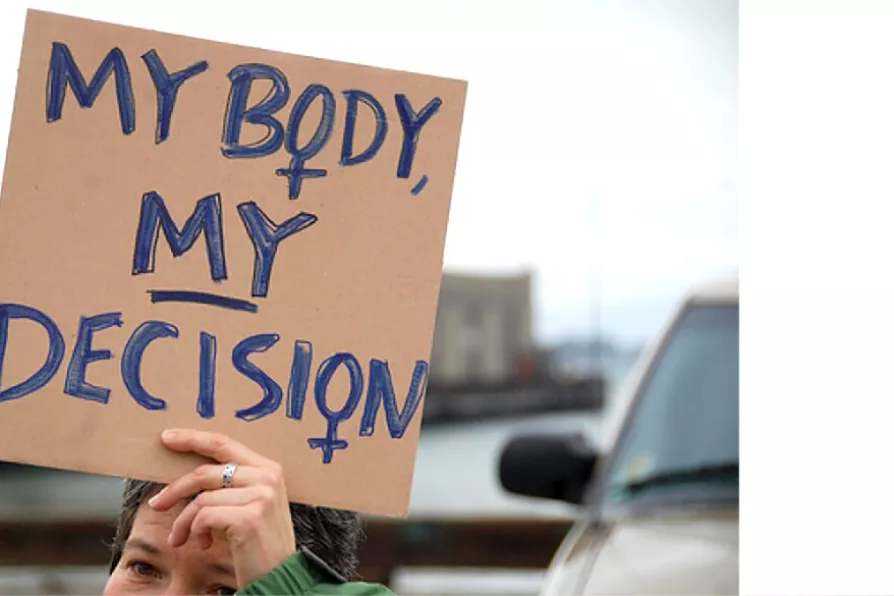Does widespread and uncontrolled use of AI change our relationship with scientific meaning? Or with each other? ask ROX MIDDLETON, LIAM SHAW and MIRIAM GAUNTLETT

 (L to R) The message is loud and clear; supporter Megan Rapinoe
[Steve Rhodes/Flickr Creative Common/Lorie Shaull/Creative Commons]
(L to R) The message is loud and clear; supporter Megan Rapinoe
[Steve Rhodes/Flickr Creative Common/Lorie Shaull/Creative Commons]
WHEN it comes to defending women’s reproductive rights, there’s no question where the nation’s union women stand: 100 per cent for their sisters and against the mostly male repressive forces who would strip those rights away.
Which is why the Coalition of Labor Union Women (CLUW) and individual unions, including the four largest, joined friend-of-the-court briefs on the side of the Jackson, Mississippi, Women’s Health Organisation as its freedom of reproductive choice case comes to the Supreme Court on December 1.
That day, as the Women’s March prepares to surround the court outside, the justices will hear oral argument on the case pitting the centre, the Magnolia State’s sole abortion-providing clinic, against the state government and its ruling right-wing Republicans referred to as “Grand Old Party” (GOP).

Organised workers at the notoriously anti-union global giant are scoring victory after victory, and now international bodies are pitching in to finally force this figurehead of corporate capitalism to give in to unionisation, writes EMILIO AVELAR

Police guidelines suggesting home searches and digital checks for women who experience pregnancy loss under suspicion of having broken the outdated 1967 Abortion Act have sparked uproar, writes PEOPLES’ HEALTH DISPATCH











